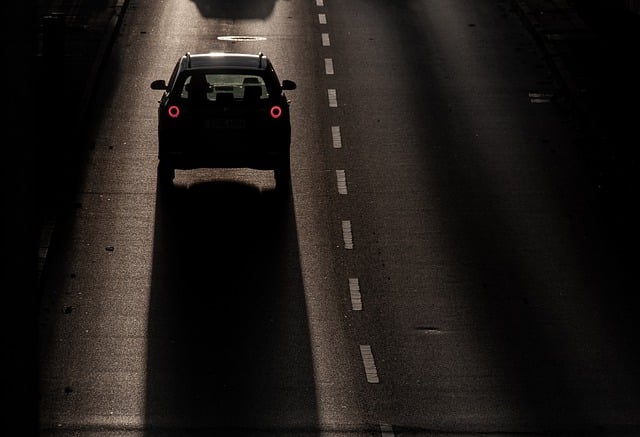Navigating PCP Claims: A Step-by-Step Guide to Ending Your Car Lease in the UK
Personal Contract Purchase (PCP) is a car finance option in the UK that involves an initial deposit…….

Personal Contract Purchase (PCP) is a car finance option in the UK that involves an initial deposit followed by fixed monthly payments over two to four years. At the end of the contract, you can return the vehicle, purchase it outright, or part-
Navigating the end of a Personal Contract Purchase (PCP) agreement can be both a relief and a source of questions. This article demystifies the process of returning your car after completing a PCP deal in the UK, from understanding your contract terms to settling your PCP claim. We’ll cover the essential steps for a smooth return, how to assess your vehicle’s residual value, and what comes after you hand over the keys. Whether you’re ready to upgrade or have other plans, this guide will help ensure you meet all PCP claims requirements and finalise your financial obligations without complications.
- Understanding Your PCP Agreement: An Overview of Personal Contract Purchase Terms and Conditions
- The Process of Returning Your Vehicle: Steps to Follow When Ending Your PCP Agreement
- Valuing Your Car at the End of the PCP Term: How to Determine the Residual Value and Settle Your PCP Claim in the UK
- Handling Your Car's Return: Preparation, Documentation, and What to Expect Upon Returning Your Vehicle
- Post-Return Procedures: Dealing with PCP Claims, Potential Charges, and Finalising Your Financial Obligations
Understanding Your PCP Agreement: An Overview of Personal Contract Purchase Terms and Conditions

When considering a Personal Contract Purchase (PCP) for your vehicle, it’s crucial to thoroughly understand the terms and conditions associated with the agreement. PCP is a popular car finance option in the UK that allows you to pay an initial deposit followed by fixed monthly payments for the duration of the agreement, typically two to four years. At the end of the contract, you have three options: return the vehicle, purchase it outright, or part-exchange it towards another vehicle.
Upon entering into a PCP agreement, it’s essential to review all the specifics outlined in the contract. This includes the Guaranteed Minimum Future Value (GMFV), which is the estimated value of the car at the end of the contract. The amount you pay monthly is based on the difference between the car’s initial value and the GMFV. PCP claims, a term often used in the context of settling the final payment or claiming the car at the end of the agreement, are handled by the finance provider according to the stipulated terms. In the event of excess mileage or vehicle condition beyond fair wear and tear, you may face additional charges. Therefore, it’s imperative to understand the conditions set forth for vehicle return, as these will affect your PCP claim outcome in the UK. Keeping detailed records of the car’s maintenance and a clear understanding of what constitutes ‘fair wear and tear’ can help mitigate potential extra costs upon contract completion. Understanding your PCP agreement involves being aware of all these factors to ensure a smooth handover or vehicle purchase at the end of your contract term.
The Process of Returning Your Vehicle: Steps to Follow When Ending Your PCP Agreement

When concluding your Personal Contract Purchase (PCP) agreement and returning your vehicle, it’s crucial to adhere to a structured process to ensure a smooth transition. The first step involves notifying your finance provider of your intention to return the car. This should be done in writing, well in advance of the agreed end date, as stipulated in your PCP contract. Upon notification, the provider will issue a settlement figure, which includes the outstanding balance and any potential early termination fees. It’s important to settle this amount to avoid any additional charges.
Prepare your vehicle for return by ensuring it is clean and in good working order, fulfilling the condition outlined in your contract. Document all the car’s details, including its mileage, condition, and any modifications made during your tenure, as these may be required for the final inspection. During the final assessment, the finance company will check the vehicle against the expected condition and agreed mileage. If the car meets the agreed specifications, you will receive a settlement figure. In cases where the car’s value has depreciated more than the remaining balance, you may have to pay the difference unless your contract includes a final payment option that covers this scenario. Alternatively, should you wish to purchase the vehicle, you can exercise your optional purchase plan outlined in your PCP agreement, subject to acceptance by the finance provider and meeting any outstanding payments.
For PCP claims in the UK, it’s essential to follow the contract terms closely and communicate effectively with your finance provider to understand all associated costs and procedures. Should you encounter any issues or have questions about the process, PCP claims services can offer guidance and support throughout the return process. Remember to keep all documentation related to your PCP agreement, as this will be necessary for both the return process and for your records.
Valuing Your Car at the End of the PCP Term: How to Determine the Residual Value and Settle Your PCP Claim in the UK

When the contractual period of a Personal Contract Purchase (PCP) agreement comes to an end, one of the critical steps is determining the residual value of your car. This figure was established at the outset of the agreement and represents the expected future value of the vehicle after the contract term. To accurately assess your car’s residual value, it’s advisable to consult credible resources such as online car valuation tools, industry guidelines, and market trends. These resources can provide a realistic estimate based on your car’s make, model, year, condition, and mileage.
Once you have an understanding of your car’s residual value, you can proceed to settle your PCP claim in the UK. This involves paying the optional final payment, also known as the balloon payment, which is the difference between the car’s initial purchase price and its residual value. After this payment is made, you own the car outright. If you opt to return the vehicle, ensure that it’s in line with the agreement’s terms and conditions. The finance company will assess the car upon return, comparing its condition to the expected state based on typical wear and tear for its age and mileage. Any excess wear or damage could result in additional charges. If you prefer to part-exchange your vehicle, the residual value will be offset against a new agreement or vehicle purchase. For those looking to handle their PCP claims uk efficiently, it’s essential to keep all documentation related to your agreement and to communicate with your finance provider throughout the process to avoid any misunderstandings or additional fees.
Handling Your Car's Return: Preparation, Documentation, and What to Expect Upon Returning Your Vehicle

When the time comes to return your car after the end of a Personal Contract Purchase (PCP) agreement in the UK, careful preparation and thorough documentation are key to ensure a smooth process. Begin by reviewing the terms of your original contract; this will outline the conditions for returning the vehicle, including any potential charges for excess mileage or damage beyond fair wear and tear. Prepare your car for collection by cleaning it and gathering all necessary documents such as the service history, user manual, and a fully completed and signed PCP return form provided by the finance company. Ensure that you have all personal and financial documentation related to the agreement, including proof of address and identification.
Upon returning your vehicle, follow the procedure laid out by your finance provider. Typically, this involves handing over the car at an agreed location, such as a dealership. At this point, a final inspection will be conducted to assess the vehicle’s condition against the initial contract terms. Any issues outside of acceptable wear and tear could result in additional charges. The finance company will then handle the PCP claims process, which includes settling the outstanding balance if there is one, and processing any equity you may have built up. If you opted for the optional purchase at the outset, and have made all payments on time, subject to a positive final assessment, the car is yours to keep. If not, the finance company will sell the vehicle and settle any remaining balance with you accordingly. It’s advisable to familiarize yourself with the PCP claims process and your responsibilities to ensure a hassle-free transition at the end of your agreement.
Post-Return Procedures: Dealing with PCP Claims, Potential Charges, and Finalising Your Financial Obligations

When the contractual period for your Personal Contract Purchase (PCP) agreement concludes and it’s time to return the vehicle, there are several steps and considerations to ensure a smooth transition. Post-return procedures begin with the submission of your car to the dealership or financial institution that holds your PCP claim. It’s crucial to adhere to the agreed-upon timeline to avoid any potential charges for late return, which could be incurred according to the terms of your contract.
Upon returning the vehicle, the condition and mileage of the car will be assessed against the initial agreement. Any excess wear and tear or discrepancies in the agreed-upon mileage may result in additional charges. These charges are outlined in the PCP contract’s ‘fair wear and tear’ guidelines, which detail what is considered acceptable use over the term of the agreement. Once the vehicle has been evaluated and any potential excess charges have been determined, you can proceed to finalise your financial obligations. This typically involves settling the optional final balloon payment, which represents the deferred purchase price of the car. Ensure that all necessary documentation is provided to support your PCP claim in the UK, including service records and proof of mileage, as these can influence the settlement figure and facilitate a smoother process. By understanding and adhering to these post-return procedures, you can ensure that your financial obligations under the PCP agreement are fulfilled, and you can move forward without any outstanding liabilities or unforeseen costs.
When concluding a Personal Contract Purchase (PCP) agreement by returning the vehicle, it’s crucial to adhere to the outlined steps and understand your obligations. This article has demystified the process, from comprehending your PCP agreement terms to accurately valuing your car at the end of the term, ensuring you settle your PCP claim in the UK effectively. Preparation for the return involves meticulous documentation and an understanding of what to expect upon vehicle handback. Post-return procedures are equally important, as they include managing any potential charges and finalising your financial responsibilities. Remember, for UK residents dealing with PCP claims, it’s essential to follow these guidelines to ensure a smooth transition out of the agreement. By following the provided steps and understanding the associated financial implications, you can navigate the end of your PCP agreement with confidence.







